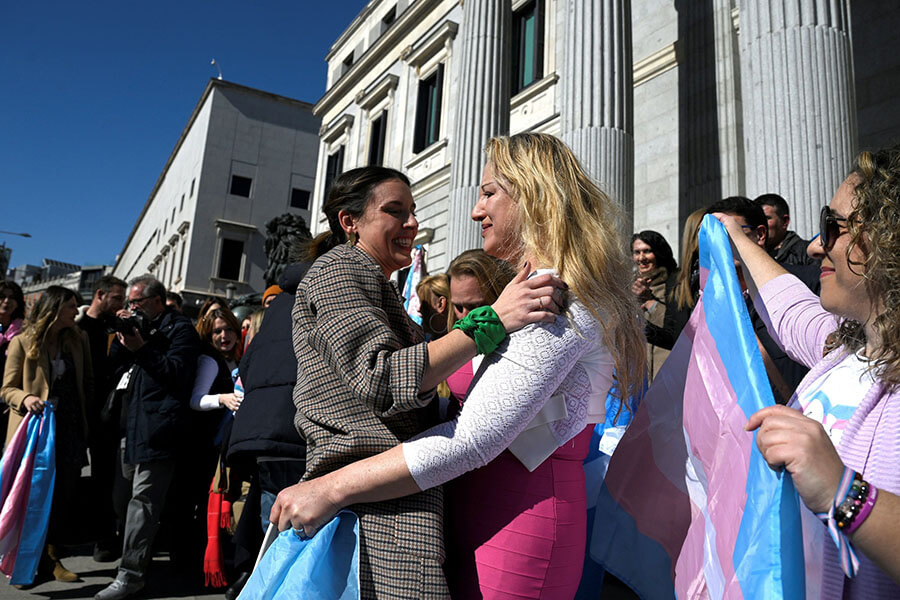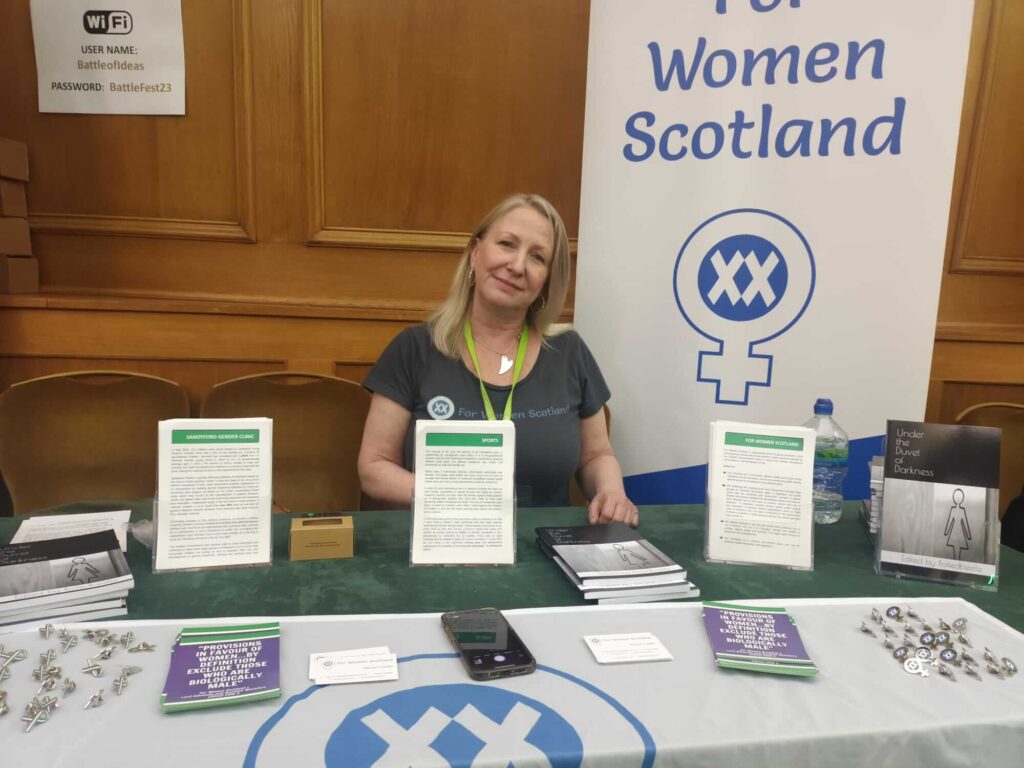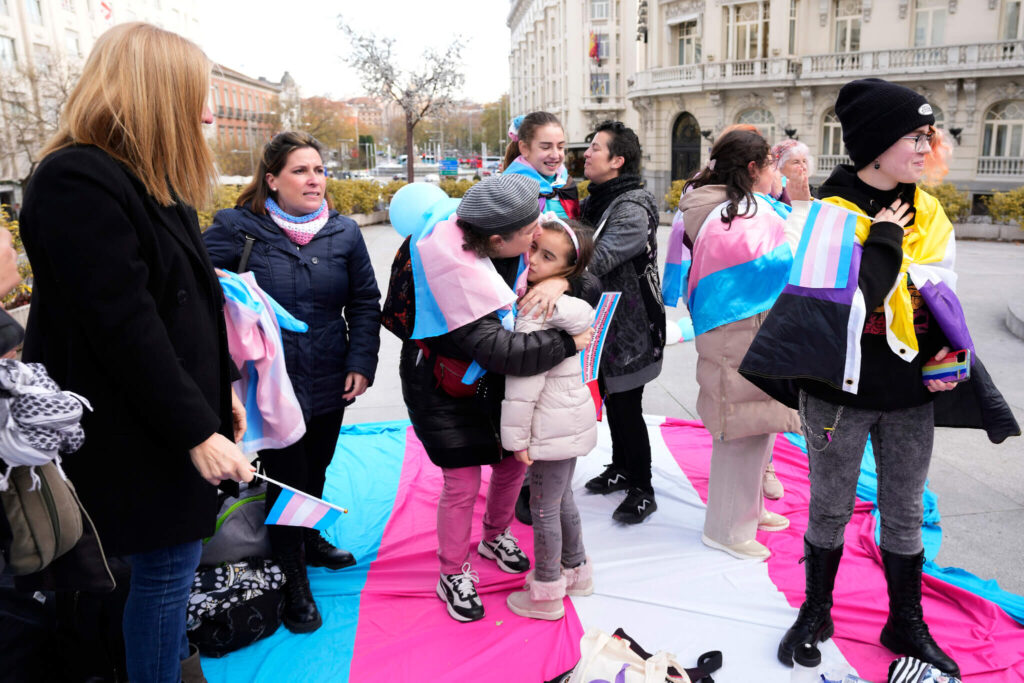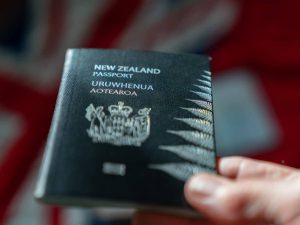Under the SNP’s initiative to prohibit ‘conversion therapy,’ parents declining to support their children in gender transition could potentially face imprisonment for up to seven years.
The proposals, released on Tuesday, outline the illegality of actions intending to ‘change or suppress’ someone’s gender identity, leading to physical or psychological harm, as dictated by the comprehensive legislation.
Related article: Mask Up Now! Spain Reactivates Rules Amid Europe’s Respiratory ‘Tridemic’
Related article: Emirates Elevates In-Flight Experience with Expanded Vegan Culinary Choices
SNP ministers have recognized that purported conversion practices frequently occur within a familial context. This acknowledgment raises the possibility of parental criminalization if they resist aligning with their child’s announcement of transgender identity.
As an illustration, preventing an individual from “dressing in a way that reflects their sexual orientation or gender identity” has been cited as an action that would be deemed illegal under the proposed legislation, even if a parent believes they are acting in the child’s best interests.

The consultation outlines the potential introduction of new criminal sanctions, accompanied by the prospect of securing preemptive civil orders against parents or religious leaders. These measures could be implemented even in situations where conversion practices have not yet occurred.
These proposed plans represent the latest contentious measures introduced by the SNP. Critics contend that these proposals may significantly impinge upon freedom of speech, privacy, and family life in Scotland.
In the previous year, proposals by Nicola Sturgeon (member of the Scottish parliament) to permit individuals as young as 16 to undergo gender changes faced opposition from the UK Government.
Religious advocates have pledged to challenge the prohibition through legal avenues.
Marion Calder, a director at the campaign group For Women Scotland, expressed serious reservations, asserting that these plans may lead to the criminalization of caring parents who could potentially face extended periods of incarceration merely for declining to endorse the gender ideology perspective.

“These proposals would grant activists and social workers unparalleled authority to intervene in family matters, potentially affecting therapists and counselors adversely.
Should the SNP and Greens persist in pursuing this, it may encounter similar legal challenges as experienced by the contentious self-identification and named person laws.”
Discouraged Practices
The initiatives concerning gender identity encompass considerably less contentious measures aimed at prohibiting discredited practices seeking to alter the sexual orientation of individuals.
Service providers engaged in endeavors to suppress or alter an individual’s sexual orientation or gender would be the focus of these measures and facilitating the removal of someone from Scotland to access “conversion” services would also be deemed unlawful.
The consultation clarified that parents or religious leaders would not face criminalization for “expressing concerns,” “advising against medical interventions,” or “not actively supporting” a child’s choice to dress as a member of the opposite sex.
However, the document highlighted that when such actions evolved into being “coercive” or “controlling,” the law would be applicable. This includes cases where these actions are motivated by a genuine “desire to help or protect the person.”

Individuals accused of engaging in conversion therapy could potentially mount a legal defense by demonstrating that their actions were “reasonable.” However, this defense would be applicable only in “a very limited number of circumstances,” primarily focused on preventing a child “from engaging in illegal or dangerous behavior.”
Those violating a civil order, procurable by social workers or activist groups acting on behalf of alleged victims, could be subject to a penalty of up to two years of imprisonment.
Individuals found guilty of a criminal offense under this proposed legislation could face a maximum penalty of seven years in prison, an unlimited fine, or both.
The SNP has decided to proceed with the enactment of this law, despite the challenges faced by the party due to the controversial gender self-identification law proposed by Nicola Sturgeon, which was blocked by the UK Government.
In England, a planned conversion therapy ban has been deferred by Rishi Sunak due to internal disagreements over the scope of its coverage.

A representative for the Catholic Church expressed “serious concerns” regarding the Scottish proposals, asserting that they might potentially criminalize advice or opinions offered in good faith.
Care for Scotland, a Christian charity, cautioned that these measures “could result in the subjective regulation of speech concerning sexuality and gender in various contexts.”
Michael Veitch, the group’s policy officer, emphasized that individuals such as parents, teachers, church leaders, counselors, and others could find themselves unfairly implicated and criminalized under these regulations.
Perceived As Destructive
However, Emma Roddick, the SNP equalities minister, emphasized that attempts to modify or suppress an individual’s gender identity or sexual orientation constitute severe violations of human rights labeled as “damaging and destructive.”
She also expressed, “The insights gathered from the consultation responses will assist us in a comprehensive examination of measures to mitigate the harm associated with conversion practices and ensure the protection of those vulnerable to such practices, the whole time ensuring the protection of freedom, including speech, religion, and belief.”
Maggie Chapman, the equality spokesman for the Scottish Greens, endorsed the proposed legislation, which the SNP committed to implement as part of its coalition agreement with her party.
“Conversion practices do not constitute therapy,” she remarked. ” They entail manipulative and harmful behaviors, embodying a type of violence that is inconsistent with a contemporary and forward-thinking Scotland.”
“No one should be subjected to the notion that there is something inherently wrong with them or be compelled to feel shame about their identity merely based on who they are.”











